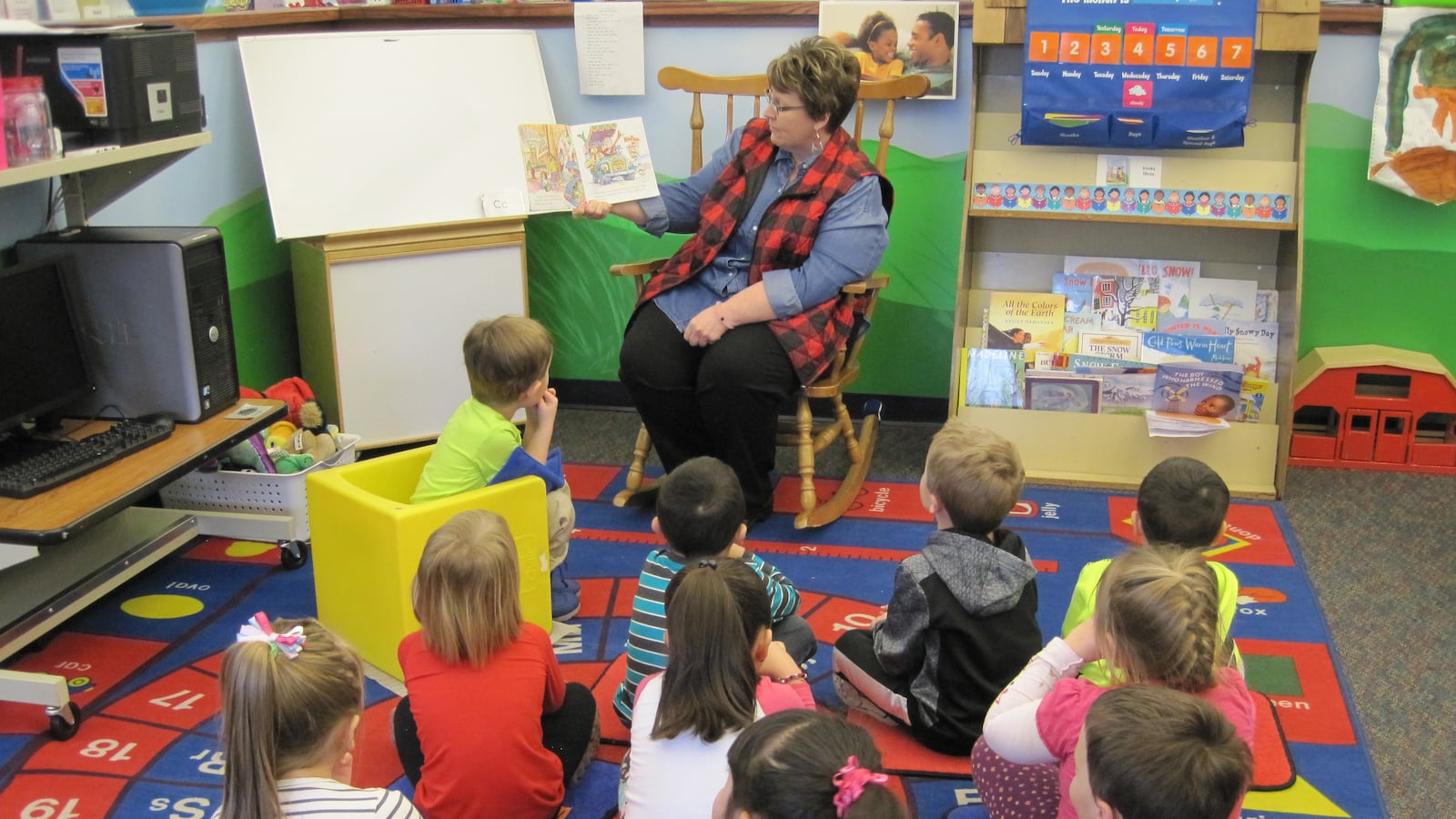Marcia Walter has worked at Dragon’s Wagon Preschool in the small town of Holyoke in northeastern Colorado for more than 25 years — starting as a teacher’s aide and working her way up to director.
In August, she got some news that made her cry: She was getting a raise.
It wasn’t a modest cost-of-living raise. It was a whopping 44 percent increase that bumped her annual salary from $32,000 to $46,000. At the same time, the preschool’s board approved increases for other staff members, and for the first time, put in place a salary schedule.
The changes came out of a years-long process by the 10-member board to better match staff salaries with those of local school district employees. The effort represents a unique victory in a field where low wages are the norm and some child care employees earn so little they qualify for public assistance. It also provides a glimpse into the complicated funding puzzle that many preschools and child care centers face when it’s time to build their budgets.
“I’m proud of where we’ve come from and where we are now,” said Tracy Stegg, a Dragon’s Wagon board member. “They deserve it.”
On average, early childhood workers nationwide earn $10.60 an hour, according to a 2016 report put out by the U.S. Department of Education and the U.S. Department of Health and Human Services. Those with at least a bachelor’s degree earn $14.70, about half of what other kinds of workers with bachelor’s degrees earn.
At Dragon’s Wagon — where the classroom walls are painted with rolling green hills, kite-flying bunnies and shoe-nibbling puppies — the board began talking about raises a couple years ago. Aside from Walter, the preschool’s other employees had all turned over in the space of four years, said board member Deb Williamson, who is vice president of the local bank.
“It opens your eyes,” she said. “Maybe we need to look at why we’re losing people.”
The board began to think harder about the importance of consistency for the 67 children who spend four half-days a week at Dragon’s Wagon and the ease with which Walter, a lead teacher, could find better-paying work if she wanted to.
She was nurturing and dedicated. She’d gone back to school to get her bachelor’s degree at the board’s urging. And like all of the preschool’s employees, Walter didn’t get employer-provided health insurance.
To help settle on a new compensation system, the board looked at the salaries offered by the local school district as well as a handful of other child care providers in the region. In addition to Walter’s $14,000 raise, they decided to raise the salary of the assistant director, who’d been at the preschool for two years, from $26,000 to $32,000. Teacher’s aides also got a boost, moving from $8.50 an hour to $10.
So, how did they come up with more than $20,000 to increase staff pay?
There was no magic bullet. Board members said they’d accumulated a small “nest egg” by squirreling away money in years there was a budget surplus. In addition, they relied on grants, tuition money, fundraising dollars from the school’s annual spaghetti supper and auction, and state money they received for serving at-risk students and those with special needs.
Asked how other preschools or child care centers might achieve such salary improvements, Stegg said a proactive board and careful planning helps.
Walter, who started working at Dragon’s Wagon in 1989, said community buy-in is critical. Residents — many of whom work at nearby hog farms, the local grain elevator or the hospital — have relied on and supported the preschool for years.
Kathy Miller, a regional support specialist for the state’s Colorado Preschool Program, said she considers the salary increases a “beautiful example” but expressed concern that the changes can’t be easily replicated elsewhere.
“I think it’s a model,” said Miller, who works with child care sites, including Dragon’s Wagon, within an eight-school district region. “I just don’t know if it’s possible in all communities.”
There are tight state and school district budgets to contend with, the public misconception that early childhood teachers are glorified babysitters and the fact that busy preschool directors may not be forging close connections with local business leaders, she said.
For Dragon’s Wagon, the challenge ahead will be sustaining the raises.
“I hope they can keep that up,” Miller said.
Tuition, which has remained at $80 a month for the last eight years, may eventually increase, Williamson said. Preschool leaders are also highlighting the new pay structure in grant applications, after learning that some foundations are eager to know about such improvements.
For her part, Walter is confident that the board has done its due diligence. She’d been privy to conversations about staff salaries for years. In fact, back in August, she knew she’d be getting a raise herself— she just didn’t know how big it would be.
“It made me realize that they do appreciate everything we do and that we’re worth it,” she said.

